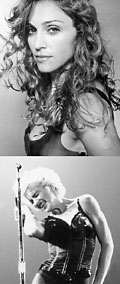ORPHEUS EMERGED
by Jack Kerouac (ibooks, $24)
TRUMAN Capote’s bitchy barb about Jack Kerouac’s prose—”That’s not writing, that’s typing”—was so sharp it’s still lodged in the late Beat icon’s body of work, a glaring wound in which Kerouac’s detractors will forever poke their pens. Though it accomplishes little else, Orpheus Emerged, the just-published novella a 23-year-old “John” Kerouac wrote in 1945, shows that Kerouac would have received even more vitriol if he’d written in more conventional fashion—as Capote seemed to want. As with his official debut, The Town and the City, Kerouac adheres to the rules of respectable literary novel writing in Orpheus, dutifully employing punctuation, frequent paragraph breaks, French mots, and references to Greek myth. The result? Mediocrity that’s not worth 24 bucks no matter how many times you read On the Road.
The thin plot is this: Paul, a cocky 22-year-old ne’er-do-well, just quit his job, so he’s loafing around Manhattan with a gang of university students. (Kerouac penned this novella right after meeting Allen Ginsberg, William S. Burroughs, Lucien Carr, and co. at Columbia.) Like many of Kerouac’s future protagonists, Paul craves experience. Lamenting that he can’t possibly consume all the texts in the school library, he confides to his pals, “The impatience I feel! The time running off like sand.” As the philosophical spoutings and cocktail parties progress, we learn how Paul is cosmically linked to Michael, a poet of his age (but seemingly much older) who’s shtupping a friend’s girlfriend while somehow maintaining an amazingly heightened—and grating—sensitivity: He spots a sparrow “singing the song of dusk, on Spring Day eve,” and wonders, “Could there be more perfect happiness? Not just to be expressing, but to be your expression? Isn’t that love? Isn’t that life?”
While the clunky dialogue and pedantic themes completely obscure Kerouac’s more pure and accessible “spontaneous prose” to come, the misogyny that will pock his future work is in evidence. The indistinguishable female characters (how different are the names Maureen and Marie?) either rant or betray, earning the descriptions “diabolical witch” or “not even human.” At one point, Paul even challenges the abused Marie’s victimhood by doubting, “Does your face hurt? Does your face hurt?” And though the “boyishly ugly” Leo isn’t gay or Jewish, he still takes the bullying—in this book, a glass of wine dumped down the collar—that forever afflicts Kerouac’s Ginsberg stand-ins.
In an appended autobiography written years later, Kerouac lists his accomplishments, including “the preachment of universal kindness, which hysterical critics have failed to notice beneath frenetic activity of my true-story novels about the ‘beat’ generation.—Am actually not ‘beat’ but strange solitary crazy Catholic mystic. . . . ” Kerouac’s achievement was infusing his writing with spirit—a wide-eyed, compassionate, kinetic force that deepens his racing prose and makes his characters’ foibles forgivable. Orpheus Emerged may boast an intro by Robert Creeley, a CD-ROM (with interactive e-book and photos), and a glimpse of a famous mind forming. But it’s still missing that spirit.








